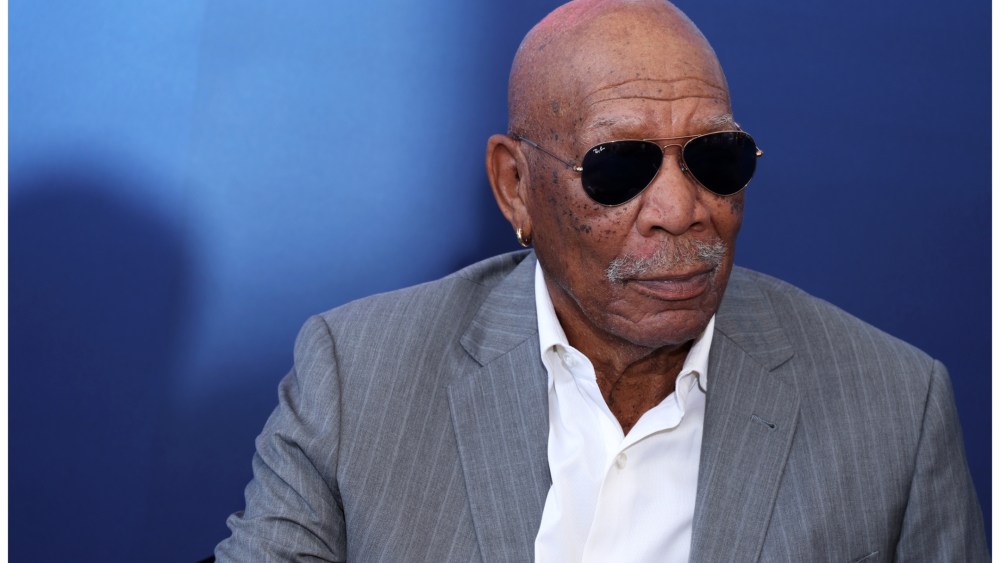Entertainment
Morgan Freeman on ‘The Gray House’, Black History Month

Morgan Freeman is not a fan of Black History Month.
“I detest it. Just the idea of it. Are you going to give me the shortest month in a year? And you’re going to celebrate ‘my’ history?! This whole idea makes my teeth itch. It’s not right,” he says Variety.
“My history is American history. It’s the only thing in this world I’m interested in besides making money, having fun and getting enough sleep.”
Now that he has co-produced the Civil War series “The Gray House” with Lori McCreary through Revelations Entertainment, Freeman is deeply mindful of the past.
“If you don’t know your past, if you don’t remember it, you will definitely repeat it,” he says. During an election year, this statement seems particularly poignant.
“Do you know this song? ‘For everything there is a season.’ It works really well in show business. You try to sell something fifteen years ago and no one looks at you. Then they say, ‘Didn’t you have a project a while ago? Do you still have it?’ That’s life in this industry. You have something you think is important, but convincing others is the hardest part.”
In addition to Rod Lake, Howard Kaplan and Leslie Greif, “The Gray House” is also produced by Kevin Costner, who recently brought “Horizon” to Cannes. Does this mean it’s a good time for other “American sagas”?
“It has to be, because here we are,” Freeman says.
The series opened the Monte-Carlo Television Festival on Friday, with Freeman himself accepting the Crystal Nymph award. Paramount Global Content Distribution is handling distribution.
Inspired by true events, the show tells the story of four Southern women: a Virginia socialite Elizabeth Van Lew (Daisy Head), her mother (Mary-Louise Parker), a formerly enslaved black woman Mary Jane Richards (Amethyst Davis) and a prostitute (Hannah James) who begins spying for the Union. And that’s just the beginning.
“It’s so broad. There are so many people in the series because we recognize that they were there. If you can do that, if you get the space to do that, bravo. It didn’t just happen to one group of people,” Freeman notes.
“[With a story like this] you are encouraged to dig. And if you start digging, you will also come up with something.”
McCreary agrees: “Morgan’s motto is: ‘Every project has its time and its team.’ I think the universe has conspired to give us time for this project. It is very much on our minds now to reflect on what we have been through. And make sure the future is brighter. We must learn – as a planet. As communities around the world.”
Despite some lighter moments in the story, they didn’t shy away from violence, she says.
“We don’t whitewash, we don’t hide the fact that African Americans were enslaved. They were not treated as full human beings. After watching these eight hours, you might look at someone who looks like Morgan or me differently. You will understand their experience, the experience of their ancestors, and you will be able to identify.”
The show’s female characters certainly aren’t just “passing cookies,” she notes.
“If I look at something and it’s an authentic representation of women, I’m engaged. And often I feel like those I can identify with are in the background. The more people like Morgan and I can tell our own stories – because no one else will – the more we will understand that women are everything. We are housewives, mothers and scientists. And spies!”
As she researched the story, she was excited to learn more about Mary Jane Richards.
“She had a photographic memory. She offered herself to be donated to the ‘Gray House’ [the White House of the Confederacy] and pretended to be a slave. She served tea and looked at all the cards. I didn’t know there was anyone who risked her entire life like that. Chapters in history books should be devoted to her. I don’t know why she was overlooked.’
Freeman adds, “I’ll tell you why: she was a woman.”











